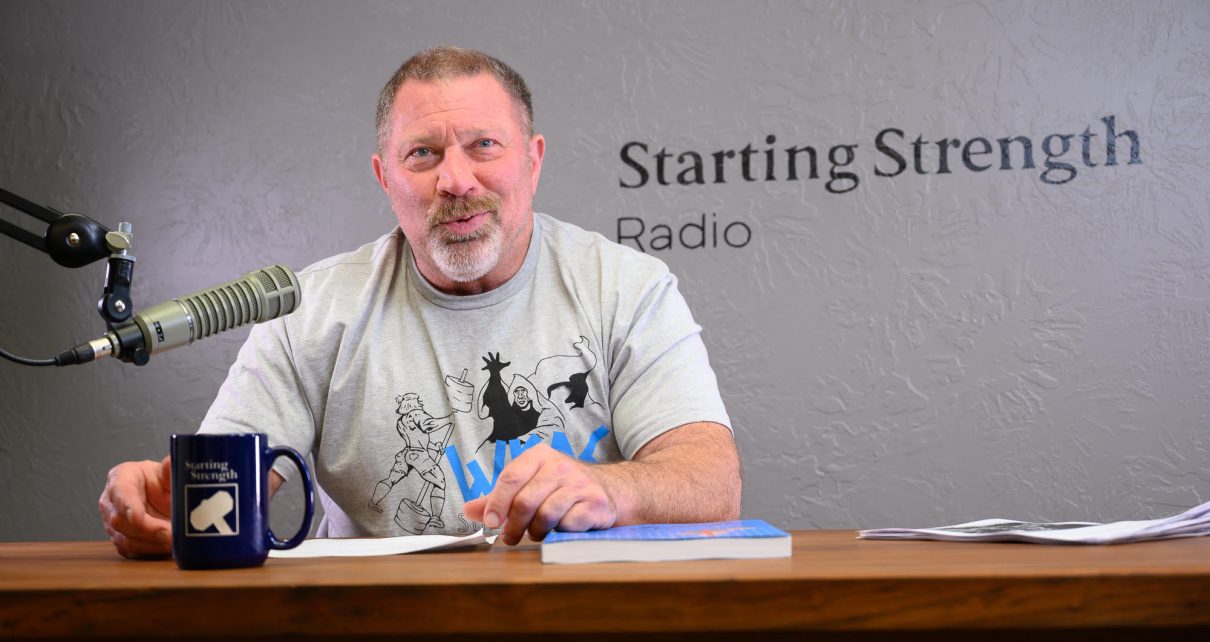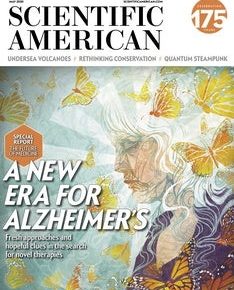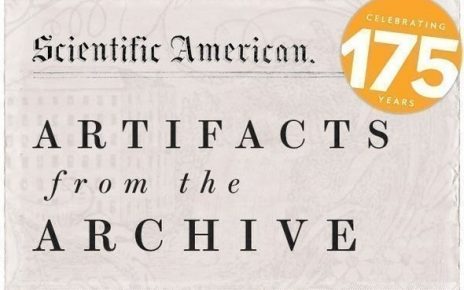Well before COVID-19 forced me into lockdown here in Hoboken, New Jersey, I dwelled in a liberal echo chamber. I read The New York Times and New Yorker and listen to National Public Radio. I chat via email, Twitter and Facebook with other good, decent, Trump-loathing folks.
We American liberals share a particular view of Sars-Cov-2. It is a vicious pathogen, and we must self-quarantine on a massive scale to slow its spread, in spite of the terrible economic cost. We disdain Trump and his Fox News minions for downplaying the threat of the virus, at least early on, and claiming that it is comparable to seasonal flu. They are clearly anti-science idiots. Occasionally, the political cast of my perspective nags at me. Why, just because I lean left, should I view the pandemic in a certain way?
I’ve been mulling over this question even more as a result of recent exchanges with Mark Rippetoe, who runs a gym in Wichita Falls, Texas. Rippetoe is a 64-year-old strength coach, who advises people in books, articles and podcasts on how to get strong by lifting weights. (He inspired one of my colleagues at Stevens Institute of Technology, Lindsey Cormack, a professor of political science, to become a competitive weightlifter.)
Rippetoe and I first crossed paths in late February, when he contacted me about “The Cancer Industry: Hype Versus Reality.” He wanted to talk about my article on his podcast, “Starting Strength Radio,” on which he discusses fitness and health. I said sure. Rippetoe was well-informed, blunt and funny. He spoke with a growly Texan twang, and he had an anti-authoritarian streak to which I related. And he clearly has excellent taste in science writing.
That show aired March 20. A month later Rippetoe asked if I wanted to talk about “the current situation with COVID-19.” I said sure. Our talk was posted online April 24. I listened more than I spoke, because Rippetoe had a lot to get off his chest. He was still genial and jokey. Noting that fear can make you do “stupid things,” he recalled that while he was killing rattlesnakes on his property recently, one struck him and hooked a fang on his pant leg. “I did stupid things for about 10 seconds,” he said. But his anti-authoritarianism had a sharper edge than in our previous chat, and it was harder for me to relate to.
When I described myself as a “bleeding-heart liberal” who favors socialist policies, Rippetoe quipped, “Of course, you live in New Jersey.” He is a “conservative libertarian” who doesn’t want to live in a “police state” that “controls every aspect of my activities.” He voted for Trump in 2016 and plans to vote for him again. “The trick to liking Trump,” he said, “is to pay no attention to what he says or types, and just focus on what he’s gotten done,” like cutting federal taxes and regulations and trying to get us out of Afghanistan and other wars. Below are Rippetoe’s arguments about COVID-19, made in the podcast and via email, followed by my responses.
The Libertarian View of COVID-19
Rippetoe, who has a degree in geology, assured me that he is not anti-science, anti-medicine or anti-vaccine. He gets a flu shot every year. But he believes that Anthony Fauci and other health authorities have grossly exaggerated the threat of COVID-19.
Rippetoe disparaged an influential model from Imperial College, London, that in March compared COVID-19 to the deadly Spanish flu of 1918-1919 and predicted more than 2 million deaths in the U.S. “There are no data to suggest that millions of people are going to die,” Rippetoe said. By late April the U.S. death toll had only reached levels comparable to a bad flu season, and it was already flattening out in New York City and elsewhere.
Rippetoe admires analyses of Stanford epidemiologist John Ioannidis (whom we also discussed briefly in the cancer podcast). In a controversial essay in mid-March, Ioannidis argued that, given uncertainty about its infectiousness and lethality, we might be overreacting to COVID-19. Shutting down businesses and ordering people to stay home might end up doing more harm than good.
In April, Ioannidis and 16 other researchers carried out a study in Santa Clara County, California, in which they tested asymptomatic people recruited through Facebook for Sars-Cov-2 antibodies. They concluded that the number of people actually infected by the coronavirus was more than 50 times higher than “the approximately 1,000 confirmed cases at the time of the survey.”
These results suggest that the coronavirus is much less deadly than indicated by earlier estimates, which divided confirmed deaths by confirmed cases. In early March, for example, the WHO estimated the lethality of COVID-19 to be 3.4 percent, greater than the 2.5 percent rate of the 1918 Spanish flu. The Santa Clara study estimated lethality at 0.2 percent, roughly twice the typical death rate of seasonal flu. Although the Santa Clara study has provoked harsh criticism, studies in Los Angeles and New York have produced similar results, Rippetoe noted.
Given these facts, Rippetoe contends, politicians, health authorities, the media and the public have overreacted to COVID-19. He called the national shutdown of non-essential businesses a “ridiculous exercise in hysteria” that is “powered entirely by fear.” Rippetoe blamed governmental “overreach” primarily on state and local rather than federal officials. “I’m not concerned with Trump,” he said.
As a libertarian, Rippetoe hates being told what to do by officials like the mayor of Wichita Falls, who designated his gym a non-essential business. If he chooses to risk his health by keeping his gym open, and his customers choose to keep working out, why should the government force them to do otherwise?
Rippetoe pointed out that New York City, because of its high population density, is anomalous. “The healthcare system has not been overwhelmed, or even challenged, anywhere in the country other than New York City.” Elsewhere, hospitals, clinics and doctor offices “are largely empty, and as a result are in very dire financial circumstances.” It’s wrong, Rippetoe said, “to put the rest of us under the same quarantine lockdown” as New York City. Sweden, he said, was handling the coronavirus well with far fewer restrictions than the U.S.
Old guys like us (Rippetoe is 64, I’m 66) face the greatest risk of dying from the coronavirus. It is irrational, Rippetoe said, to force tens of millions of Americans young and old into unemployment to save tens of thousands of people who might not have long to live anyway. Unemployment also leads to terrible harm, including increased rates of physical and mental illness, crime, substance abuse, domestic violence and suicide. “People are going to die as a result of this unprecedented overreaction,” Rippetoe said.
The Liberal View of COVID-19
I hope you turn out to be right, I told Rippetoe, that our reaction to the coronavirus has been overblown, but at this point we should still err on the side of caution. “Maybe we’re overreacting to this pandemic,” I said, “but maybe we’re not.”
I have great respect for John Ioannidis, who has suggested that the U.S. is overreacting, and whom I cited in my critique of cancer medicine. But other experts have questioned his analyses of the pandemic, and Ioannidis himself emphasizes that the Santa Clara estimates are tentative. The same is true of other attempts to gauge the infectiousness and lethality of Sars-Cov-2.
Studies indicating high infection rates have bad as well as good implications. The good news is that the virus might be much less lethal than early models assumed, and that many people have negligible symptoms. The bad news is that it might be far more infectious than assumed, which explains why it has caused such rapid spikes in fatalities.
Yes, deaths are tailing off now, but that is because of the restrictive measures to which Rippetoe objects. Without social distancing, many more people would be dying. Even with the lockdown, coronavirus deaths have already exceeded the 60,000 flu deaths during the 2017-2018 season, one of the worst in decades, and deaths seem likely to reach 100,000 soon (as Trump recently acknowledged). Sweden’s relatively relaxed response to the pandemic isn’t working as well as some enthusiasts claim.
As for Rippetoe’s libertarian take on the pandemic—that he and his gym clients should be free to risk infection and death if they choose–those who violate social-distancing rules endanger others as well as themselves. I share Rippetoe’s concern that the pandemic might lead to increased government controls and surveillance, although I hope we move in a more democratic, progressive direction.
So where does my interaction with a pro-Trump, Texan libertarian leave me? Rippetoe has made me more aware of my biases. From now on, I’ll try harder not to let my political views distort my view of the pandemic. Physicians Vinay Prasad and Jeffrey Flier make a similar point in an essay in Stat News on the controversy over Ioannidis. They accuse some critics of rejecting or embracing analyses based on their political implications:
“Society faces a risk even more toxic and deadly than Covid-19: that the conduct of science becomes indistinguishable from politics. The tensions between the two policy poles of rapidly and systematically reopening society versus maximizing sheltering in place and social isolation must not be reduced to Republican and Democratic talking points, even as many media outlets promote such simplistic narratives.”
Rippetoe and I are still in touch. He suggested that we talk again in six months, when it should be clearer whether we did in fact overreact to COVID-19. He invited me to visit him when (if?) things return to normal. “You really need to get out of northern New Jersey. Come to Texas for a visit. We’ll eat and drink and have fun for a while.” I’d like that.
Further Reading:
Will COVID-19 Make Us Less Democratic and More like China?
Will COVID-19 Make Us More Socialist?
Does Surging Existential Dread Help Trump?
The Coronavirus and Right-Wing Postmodernism
Illness Gives Pandemic Scholar Insight into Botched COVID-19 Response
For a break from COVID-19 coverage, check out my free, online book Mind-Body Problems: Science, Subjectivity & Who We Really Are.




